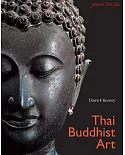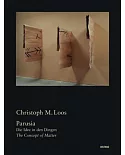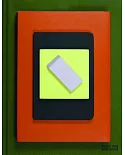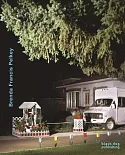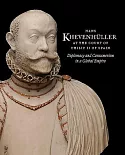In September 1879, James McNeill Whistler boarded the Venice-bound night train in Paris. He was forty-five years old and bankrupt. What was to be a three-month stay in the Italian city--long
enough to complete a set of twelve etchings--stretched to fourteen months. When Whistler returned to London, he brought back over fifty magnificent etchings and a hundred pastels, far in excess
of the original commission. In Palaces in the Night, Margaret F. MacDonald looks at this key period in Whistler's career, examining his unique vision of Venice and his development of the
medium of etching. She shows how he reestablished himself in the art world of London and Paris, turning disaster and disgrace into profit and prestige. Lavishly illustrated with some of the
most beautiful and intriguing images Whistler ever produced, this book provides a fascinating account of a pivotal period in the artist's long and complicated career.
Whistler's aim was to restore both his fortune and reputation with the Venetian etchings. To that end he included views of familiar sights like the Riva degli Schiavoni and San Marco, but he
also captured quiet backwaters, secret gardens, and lantern-lit windows that did not appear in any guidebook. His selection of views and compositions, plus the expressiveness of his line and
printing, differentiated his work from that of others, and MacDonald shows the process by which Whistler selected, shaped, and edited his Venetian corpus. He drew figures in distinctively
Italian costume, each an individual, moving, gesturing, and interacting with other real people.
An appendix of Whistler's letters from Venice provides an entertaining account of his time there and also deepens the reader's understanding of how the city challenged and inspired him. In
September 1879, James McNeill Whistler boarded the Venice-bound night train in Paris. He was forty-five years old and bankrupt. What was to be a three-month stay in the Italian city--long
enough to complete a set of twelve etchings--stretched to fourteen months. When Whistler returned to London, he brought back over fifty magnificent etchings and a hundred pastels, far in excess
of the original commission. In Palaces in the Night, Margaret F. MacDonald looks at this key period in Whistler's career, examining his unique vision of Venice and his development of the
medium of etching. She shows how he reestablished himself in the art world of London and Paris, turning disaster and disgrace into profit and prestige. Lavishly illustrated with some of the
most beautiful and intriguing images Whistler ever produced, this book provides a fascinating account of a pivotal period in the artist's long and complicated career.
Whistler's aim was to restore both his fortune and reputation with the Venetian etchings. To that end he included views of familiar sights like the Riva degli Schiavoni and San Marco, but he
also captured quiet backwaters, secret gardens, and lantern-lit windows that did not appear in any guidebook. His selection of views and compositions, plus the expressiveness of his line and
printing, differentiated his work from that of others, and MacDonald shows the process by which Whistler selected, shaped, and edited his Venetian corpus. He drew figures in distinctively
Italian costume, each an individual, moving, gesturing, and interacting with other real people.
An appendix of Whistler's letters from Venice provides an entertaining account of his time there and also deepens the reader's understanding of how the city challenged and inspired him.



